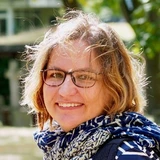"Point Alpha" was an American observation post on the German-German border and thus stands like no other place for the division and reunification of Germany and Europe as well as for the problems of former and current border regions today. Based on this historically significant location, PARI conducts interdisciplinary research in three thematic areas:
In the subject area "Cold War and its significance for the present", the social, cultural and political effects of the East-West conflict for divided Germany, for Europe and for other regions of the world are examined. One focus is on the dynamics between global and local conflict constellations and the effects of global developments on local areas. In addition, the actions and experiences of those actors who subverted or overcame the multiple borders of the Cold War in various ways are of interest. The after-effects of the Cold War beyond the end of state socialism up to the present day will also be analysed.
The thematic field of "Border Studies" focuses on border regions as spaces of experience in which specific practices, cultures and identities developed that were characterised by the border. It also asks what remains of a border once it has lost its significance and power. Based on the constellation at the inner-German border, the dynamics and practices of spatial and social, formal and informal border-making and border-breaking will also be analysed in other regions of the world.
The thematic field "Democracy in the global order" deals with the dynamics of democratic practices and institutions. After the end of the Cold War, Western liberal democracy initially seemed to have established itself worldwide as a successful model. Since the turn of the millennium, however, the model has been confronted with numerous challenges. Based on a problematisation of the transition to democracy in the regions of the former GDR and current conflicts between West and East German democratic cultures, the focus is also directed towards other countries and regions of the world and comparatively examines local, regional, national and supranational manifestations of democratic practices and institutions as well as the possibilities of revitalising and stabilising democracy.
The institute's research systematically interweaves the East-West and North-South perspectives in all three fields. One focus is the study of (post-)socialist countries and societies in Eastern and East-Central Europe and in the Global South, as well as their relations to regions of the liberal West and the Global North.
As one of the three managing directors of the "Point Alpha Research Institute", Erfurt historian Professor Christiane Kuller explains: "The profile of PARI takes up central aspects of the research profile strategy of the University of Erfurt and thus offers us the opportunity to test and further develop these in a reliable framework. This applies in particular to scientific networking, research-oriented graduate services and dialogue with society. PARI thus offers the opportunity for cross-faculty, cross-university and interdisciplinary research co-operation. It complements and expands the university's spectrum in the area of inter- and transdisciplinary research, particularly with regard to the regional focus on Eastern and Central Eastern European research and in the area of the so-called 'Global South'."
PARI is funded by the Thuringian state government/state chancellery to the tune of 700,000 euros until December 2024 – for staff, scholarships, fellowships and events. In addition, Fulda University of Applied Sciences is funding three qualification positions for doctorates.
The institute's current temporary funding is to be converted into permanent funding at a later date.


